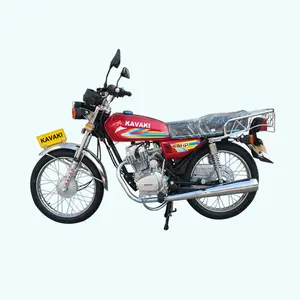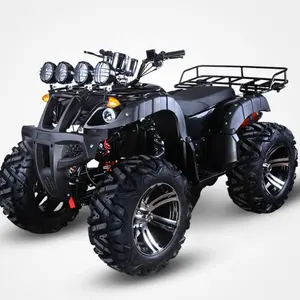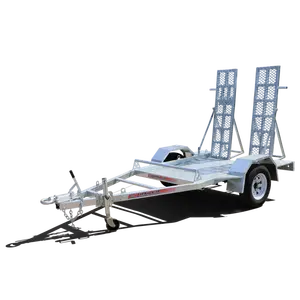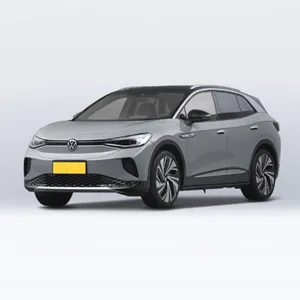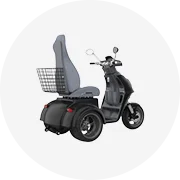Popular in your industry



















































































































































































































Top categories
About motorcycle ghana
Ghana's bustling streets and rugged rural paths are witnessing a transportation transformation, powered by the rise of motorcycles. These two-wheeled machines have become more than just a trend; they're an essential part of daily life, offering affordability, flexibility, and a newfound freedom to navigate the diverse terrains of the country. From practical commuter models to rugged off-roaders, this article shifts gears to explore the top motorcycle models that are revving up Ghana's market, fueled by the robust platform of Alibaba and the innovative spirit of local creators.
The Rise of Motorcycle Popularity in Ghana
The motorcycle, scooter, and side-car market in Ghana has experienced a notable surge in popularity, reflecting a broader trend of growth over recent years. This upswing is attributed to the practicality and affordability of these vehicles, which cater to the diverse transportation needs within the country. Despite a slight contraction following a peak, the general trajectory for the market has been one of expansion, underscoring the increasing reliance on these modes of transport. The export sector has seen a significant uptick, particularly in the year 2020, indicating a robust demand for Ghanaian motorcycles and related vehicles in neighboring countries. This trend is not only a testament to the vehicles' rising domestic use but also to their growing footprint in the regional trade landscape.
Exploring Alibaba's Role in Ghana's Motorcycle Trade
Alibaba has emerged as a significant player in facilitating the motorcycle trade in Ghana, offering a diverse range of models that cater to various needs and preferences. The platform lists an array of motorcycles, from fuel-efficient street bikes to robust off-road dirt bikes, showcasing the versatility of options available to the Ghanaian market. The presence of motorcycles designed for different terrains and purposes reflects Alibaba's understanding of the varied applications of these vehicles in Ghana. From navigating the bustling city streets to tackling the more challenging rural landscapes, the platform provides access to motorcycles that are built to withstand the unique demands of each environment.
Moreover, Alibaba's role extends beyond just offering a wide selection. It also serves as a bridge between manufacturers and the Ghanaian market, ensuring a steady flow of new and efficient models into the market, catering to the growing demand for motorcycles in Ghana.
Top Motorcycle Models Available on Alibaba

Alibaba showcases a diverse range of motorcycles tailored for the Ghanaian market, catering to various preferences and needs. The platform features models equipped with engines designed for both efficiency and performance. For those seeking OEM solutions, there are street bikes that represent a reliable option, boasting a design that balances durability with aesthetic appeal. The market also offers motorcycles well-suited for the roads of Ghana. Budget-conscious buyers might consider models available in various engine capacities, known for their affordability in the African market.
Certifications underscore the quality of models that are factory supplied and cater to a range of African countries. Models with disc brake systems promise reliability at a competitive price point.
For those interested in classical designs, there are motorcycles that offer a blend of tradition and modern engineering. The popular series provides a range of capacities, combining cost-effectiveness with robust performance.
Features and Specifications of Leading Models
Models designed for specific uses, such as those for police, have garnered attention for their balance of performance and duty-specific features. Their low center of gravity is engineered to ensure stability at high speeds, a crucial aspect for escort vehicles. The motorcycle combines the high-speed capabilities of standard bikes with specialized equipment tailored for operations. Feedback from users has influenced its design, leading to a motorcycle that excels in performance and reliability. Riders have noted the motorcycle's comfort and handling prowess, even when equipped with additional gear. While the full specifications list includes engine, fuel, electrical, transmission, gear ratio, chassis, brakes, suspension, and dimensions and weight, these details are tailored to meet the needs of government and non-government projects and may vary by region.
Understanding the Different Types of Motorcycles
The Ghanaian market showcases a diverse range of motorcycles, catering to various preferences and needs. Among the assortment, there are conventional street bikes designed for daily commuting and errands. Dirt bikes and pit bikes ranging from smaller to larger engine capacities are also prevalent, tailored for off-road enthusiasts and adventure seekers. These models are built for adults and offer a blend of performance and durability for rough terrains.
Cruise control features are becoming increasingly common, enhancing long-distance travel comfort. The market also includes chopper-style motorcycles, which are a nod to the classic American cruiser, adapted for the African market with engine capacities typically around mid-range. These motorcycles combine aesthetic appeal with functional design, suitable for both urban and rural settings.
In terms of utility, there are models that are hot sellers in regions like Yemen and Sudan. These motorcycles are often available in CKD/SKD formats, allowing for local assembly and customization. The variety extends to economical models, which are designed to be cost-effective solutions for transportation needs in the African market. The inclusion of models with disc brakes and gasoline engines indicates a focus on safety and fuel efficiency.
Materials and Manufacturing: What Goes into Ghanaian Motorcycles
In Ghana, the ingenuity of young creators is evident in the motorcycle industry, as demonstrated by Samuel, a 17-year-old who constructed a motorbike with a wooden frame. This motorcycle is not only electric and solar-powered but also incorporates reused parts, showcasing a commitment to sustainability and resourcefulness. The wooden elements of the bike, fashioned by hand without power tools, were originally destined to be firewood, indicating a creative repurposing of materials. Such innovation highlights the potential of Ghanaian craftsmanship in producing functional and environmentally friendly transportation solutions.
The construction process of this unique motorbike, as captured in a video, reveals a functioning bell, braking system, lights, and even a speaker for music, all integrated into the wooden structure. This level of detail signifies the meticulous approach to motorcycle manufacturing in Ghana, where builders like Samuel rely on manual skills to achieve precision and functionality. The use of timber in motorcycle construction is particularly noteworthy, as it suggests a blend of traditional materials with modern technology, reflecting the adaptability and innovation within the Ghanaian motorcycle industry.
Advantages of Sourcing Motorcycles from Ghana

Motorcycles in Ghana serve as a vital mode of transportation, offering both commercial and private transport solutions for people and goods. Their significance is particularly pronounced in rural areas, where they often stand as the only affordable and accessible means of motorized transport. This utility extends to urban settings as well, where motorcycles navigate through traffic more efficiently, providing reliable travel times and overcoming the first/last mile challenge of public transport. The adaptability of motorcycles in various roles, from passenger conveyance to goods transportation and even as makeshift ambulances, underscores their versatility.
The employment opportunities generated by the motorcycle trade in Ghana cannot be overstated, with many youths finding livelihoods within this sector. This economic aspect is complemented by the motorcycles' contribution to mobility, which is essential for the daily activities of numerous Ghanaians. With the country's efforts to amend legislation to further integrate motorcycles into the public transport system, the role of motorcycles is set to become even more central to Ghana's transportation landscape.
Sourcing motorcycles from Ghana presents a unique advantage due to the established importance of these vehicles within the local transport infrastructure. The motorcycles cater to a range of needs, from commercial to private use, and are tailored to navigate the diverse and challenging terrain of the country. This adaptability to local conditions suggests a level of robustness and reliability that could be beneficial for markets with similar transportation challenges.
Applications: How These Motorcycles Are Revolutionizing Transportation
In Ghana, motorcycles have become a pivotal mode of transportation, revolutionizing mobility in both urban and rural landscapes. Their ability to navigate through congested urban traffic and the accessibility they provide in rural areas where other forms of motorized transport are scarce, underscores their importance. Motorcycles are not just a means of transport but also serve as a vehicle for the transport of goods, including agricultural products, and in some cases, even function as makeshift ambulances. This versatility in application demonstrates the motorcycle's role in enhancing the connectivity and economic vitality of Ghanaian communities. The adaptation of motorcycles for commercial use is also a significant employment driver, especially for the youth, contributing to the socio-economic fabric of the nation. As motorcycles continue to address the first/last mile challenge of public transportation, their impact on the daily lives of Ghanaians is profound, making them an indispensable element in the country's transportation network.
Conclusion

In conclusion, the motorcycle market in Ghana is a vibrant and essential component of the nation's transportation ecosystem. With a surge in popularity, these vehicles have adapted to the multifaceted demands of Ghanaian life, proving indispensable in both urban and rural settings. The platform plays a pivotal role in diversifying the available models, connecting local consumers with a global network of manufacturers. The top models discussed highlight a market rich in variety and ingenuity. Motorcycles in Ghana are not just vehicles; they are lifelines that bolster the economy, empower the youth, and revolutionize transportation. As Ghana continues to navigate its path towards integrating motorcycles into its public transport system, the potential for growth and the impact on daily life is immense, promising a future where mobility is accessible, efficient, and sustainable for all.
